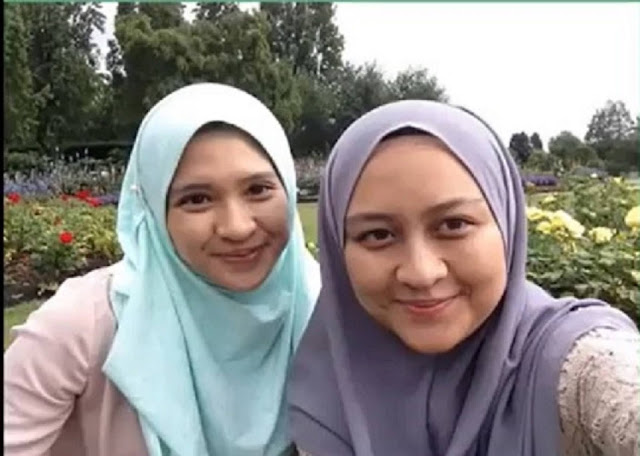While donating a kidney to a patient suffering from Chronic Kidney Disease (CKD) is an extremely noble cause, it is also a tough life-changing decision to make. That said, the National Kidney Foundation of Malaysia (NKF) continues steadfast in its mission to educate the public and raise awareness about kidney transplant and donation, in a bid to save more lives.
One of the ways NKF raises awareness is through its Community Organ Donation Drive (CODE): Life Webinar themed “Living Kidney Transplant”. This latest fourth instalment shared stories from kidney donors and their recipients.
Moderated by Consultant Nephrologist and Kemaman Hospital’s medical department head Dr Shahnon Anuar Shahrani together with Consultant Nephrologist from Universiti Teknologi MARA Medical Centre Dr Nur Hidayati Mohd Sharif, this emotional webinar gave viewers an inside scoop into the lives of two CKD patients and their donors.
The first pair who shared their experience was kidney recipient Asyikin Ahmad Nidzammuddin who received a kidney from her younger sister Atiqah Ahmad Nidzammuddin. Asyikin was diagnosed with CKD eight years ago at 22 years old. “Back then I remembered everything happened so fast and I did not even have time to cry, be in shock or process what was really happening. My life literally changed in just a split second,” she said.
The 31-year-old chartered accountant, who is now working as a compliance officer, said that her kidney function was only down to 1% on the day she was diagnosed. That was in July 2013. Flashforward eight years later to September 2021, she finally got a kidney transplant thanks to her younger sister Atiqah.
She also shared how she juggled work, dialysis and part-time studies. She also managed to travel overseas for holidays with her husband and just got her dialysis done while travelling. She assured viewers that dialysis can be done anywhere as long as the slot is pre-booked beforehand. A dialysis patient should be able to travel as they please and should not see it as a reason to put life on hold.
Meanwhile, donor Atiqah was asked to share her experience. The 30-year-old mother said that she had a really good support system consisting of family members, employer and co-workers. “They were very understanding of my situation when I needed to go for workup sessions at the hospital. Despite the challenging time in this pandemic, I was able to successfully complete all the procedures needed before the transplant,” she said.
Fellow kidney recipient Nurul Adhwa Abd Rahim received a kidney from her father eight years ago. She is now married with a daughter and working as a teacher. She was first diagnosed at 22 years old, after doctors detected something amiss in her urine and ordered further testing. She had no symptoms at all and her disease was categorised as auto-immune disease.
She gave advice on a few important things to note after a transplant, like taking all medication on time, avoiding raw or partially cooked food and abstaining from grapefruit as its juice can affect the medication.
She also shared the risks and safety aspects on conceiving a child after transplant. “There are risks involved but it is possible to get pregnant and deliver a healthy baby. I gave birth to a healthy 36-week-old baby girl. The only difference is that I had to be monitored by a doctor in the Maternal Fetal Medicine (MFM) which specialises in high-risk pregnancies. All my medication had to be changed too, to ensure it is safe for my pregnancy.”
As for her father and donor, Abd Rahim Atan, the 62-year-old donated his kidney when he was 54 years old. He was worried that he would not be able to donate due to his age, but he was cleared for the transplant after getting a clean bill of health.
In terms of cost, he assured viewers that it is affordable and costs only RM500 for the transplant operation, which was done at Hospital Kuala Lumpur. He urged those who have been holding back due to financial reasons to get a transplant at a government medical facility.
Just to reaffirm what has been shared, Dr Shahnon said the two government hospitals which undertakes transplants are Hospital Kuala Lumpur and Hospital Selayang. “Over the past year many transplant surgeries had to be postponed due to Covid-19 and it was only recently in early October that the transplant surgeries are starting again,” he said.
He further urged all kidney patients to take medication approved by their doctors and not to consume other medication, especially those that have been advertised to provide a cure for kidney disease. “Just remember, there is no cure for kidney disease. If there was, believe me, all doctors will be prescribing it so please be wary as it might ultimately do your body more harm than good,” he added.
Meanwhile, Dr Nur Hidayati said that age is just a number and should not be used as a determining factor to becoming an organ donor. “For kidney transplant the biological age is more important than numerical age because sometimes even young candidates fail to become donors due to their health conditions. I’ve also seen cases where people over 60 become donors because they are very fit and healthy,” she said.
A transplant is the best treatment option for kidney failure, where the recipients will have a significantly longer and better quality of life. Members of the public who are interested in contributing towards this cause of helping patients with kidney failure can find out more through NKF’s website at nkf.org.my/ or call 03-7954 9048.






Comments
Post a Comment
Feel free to give us some love